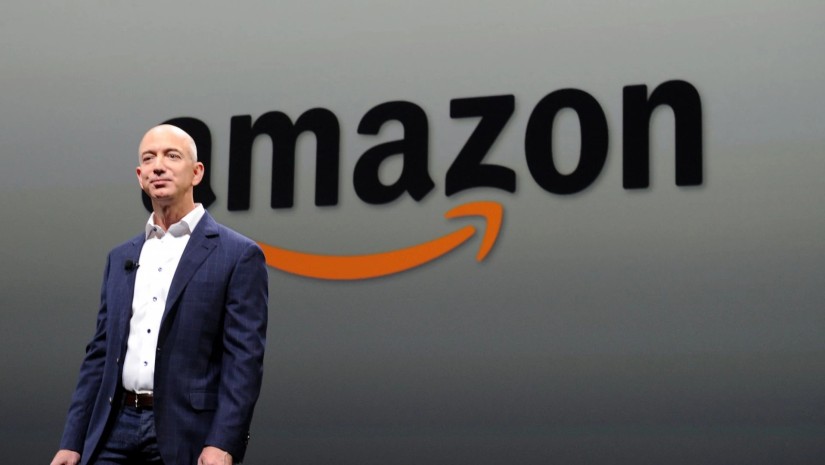The United States Federal Trade Commission (FTC) has filed a long-anticipated anti-trust lawsuit against online retailer Amazon, accusing the company of harming consumers by stifling competition.
The lawsuit, which was joined by 17 state attorneys general and filed in Amazon’s home state of Washington, follows a four-year investigation.
“The FTC and its state partners say Amazon’s actions allow it to stop rivals and sellers from lowering prices, degrade quality for shoppers, overcharge sellers, stifle innovation, and prevent rivals from fairly competing against Amazon,” the FTC said in a statement on Tuesday.
In laying out its charges, the FTC alleged that Amazon had engaged in unfair tactics to “illegally maintain its monopoly power” over the industry of online retail.
For example, the agency accused Amazon of punishing sellers who offer lower prices elsewhere, burying them “so far down” the website’s search results “that they become effectively invisible”. The FTC also said Amazon forces sellers to use its warehouses and delivery services, inflating costs for both consumers and sellers.
The federal agency asked the court to issue a permanent injunction ordering Amazon to stop its unlawful conduct.
“Left unchecked, Amazon will continue its illegal course of conduct to maintain its monopoly power,” the FTC said in its complaint.
In response, Amazon said the FTC is “wrong on the facts and the law”. It also accused the federal agency of overreach, saying that instead of fostering competition, the FTC was stifling it.
“The practices the FTC is challenging have helped to spur competition and innovation across the retail industry and have produced greater selection, lower prices and faster delivery speeds for Amazon customers,” said David Zapolsky, Amazon’s general counsel, in a statement.
In a blog post, Amazon noted that it had 500,000 independent sellers on the platform.
“If the FTC gets its way, the result would be fewer products to choose from, higher prices, slower deliveries for consumers, and reduced options for small businesses — the opposite of what antitrust law is designed to do,” Zapolsky said.
Amazon was started in a garage in 1994 and is today worth $1.3 trillion. By some estimates, the company controls as much as 40 percent of the e-commerce market.
Tuesday’s legal filing comes on the heels of similar federal anti-trust lawsuits against Google’s parent company Alphabet and Meta, the social media company that includes Facebook, as President Joe Biden’s administration seeks to rein in what it sees as big-tech monopolies.
Speaking to reporters on Tuesday, FTC Chair Lina Khan declined to discuss if the agency would ultimately seek to break up Amazon.
“At this stage, the focus is more on liability,” she said.
While a law student, Khan wrote about Amazon’s dominance in online retailing for The Yale Law Journal. She was also on the staff of a committee in the House of Representatives that wrote a 2020 report which advocated for reining in four US tech giants: Amazon, Apple, Google and Facebook.
Under Khan’s watch, the FTC has aggressively attempted to blunt the influence of those sprawling tech companies. However, some recent efforts have proven unsuccessful, including bids to block Microsoft’s takeover of the video game maker Activision Blizzard and Meta’s acquisition of the virtual reality startup Within Unlimited.
The latest complaint follows other actions the FTC has taken against Amazon in the past few months. In June, the agency sued the company, alleging it was using deceptive practices to enrol consumers into Amazon Prime and making it challenging for them to cancel their subscriptions. Amazon denied the allegations.
In late May, the company also agreed to pay a $25m civil penalty to settle allegations that it violated a child privacy law and misled parents about data deletion practices on its popular voice assistant Alexa.
Critics of the company welcomed the FTC’s latest action.
“No corporation has ever centralized this much power across so many crucial sectors. Left unchecked, Amazon’s power to dictate and control threatens the rule of law and our ability to maintain open, democratically governed markets,” said Stacy Mitchell of the Institute for Local Self-Reliance, which has pushed for the government to act against Amazon, AL Jazeera reports.
























